Clinical Interpretation of the WAIS-III and WMS-III
Introduction. Preface. Contributors. Part I: The Evolution of the Weschler Scales. D.S. Tulsky, D.H. Saklofske, and J.H. Ricker, Historical Overview of Intelligence and Memory: Factors Influencing the Wechsler Scales. D.S. Tulsky, D.H. Saklofske, and J. Zhu, Revising a Standard: An Evaluation of the Origin and Development of the WAIS-III. D.S. Tulsky, N.D. Chiaravalloti, B. Palmer, and G.J. Chelune, The Wechsler Memory Scale, Third Edition: A New Perspective. Part II: Reducing Variance When Interpreting WAIS-III and WMS-III Scores: Introduction to Chapters 4-8. D.S. Tulsky, R.J. Ivnik, L. Price, and C. Wilkins, Assessment of Cognitive Functioning with the WAIS-III and WMS-III: Development of a Six-Factor Model. R.K. Heaton, M.J. Taylor, and J. Manly, Demographic Effects and Use of Demographically Corrected Norms with the WAIS-III and WMS-III. K. Hawkins and D.S. Tulsky, WAIS-III WMS-III Discrepancy Analysis: Six-Factor Model Index Discrepancy Base Rates, Implications, and a Preliminary Consideration of Utility. G. Smith, J.H. Cerhan, and R.J. Ivnik, Diagnostic Validity. T. Lineweaver and G.J. Chelune, Use of the WAIS-III and WMS-III in the Context of Serial Assessments: Interpreting Reliable and Meaningful Change. Part III: Dealing with "curveballs" when using the WAIS-III and WMS-III: The interpretation of unstandardized administration. J. Harris, D.S. Tulsky, and M. Schultheis, Assessment of the Non-Native English Speaker: Assimilating History and Research Findings to Guide Clinical Practice. B. Palmer, M. Taylor, and R.K. Heaton, Accuracy of WAIS-III-WMS-III Joint Factor Scores When One or More Subtest is Omitted or an Alternate Subtest is Employed. J. Braden, Accommodating Clients with Disabilities on the WAIS-III and WMS. Part IV: Training Others to Admister the WAIS-III and WMS-III: A Guide to Practical Issues. L. Lacritz and C.M. Cullum, The WAIS-III and WMS-III: Practical Issues and Frequently Asked Questions. Appendix 1. Appendix 2. Index.
{{comment.content}}
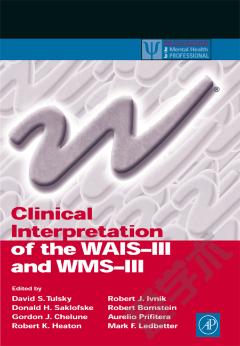
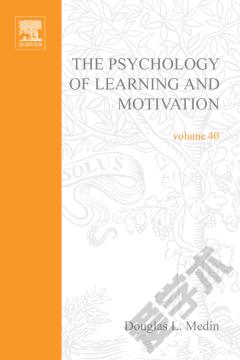

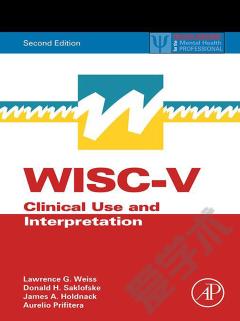
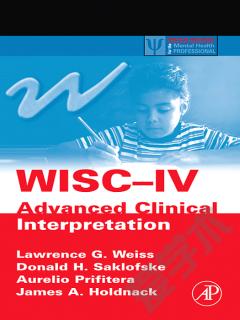
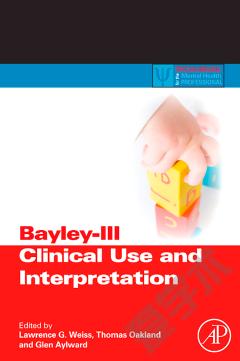
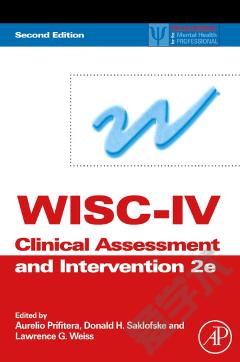

 京公网安备 11010802027623号
京公网安备 11010802027623号